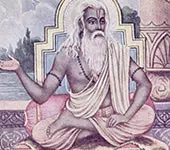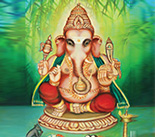Imagine being part of a celebration where the echoes of ancient traditions blend seamlessly with the divine presence of Lord Venkateswara. Every Kanuma, the Paruveta Utsavam at Tirumala brings this unique experience to life, transforming the age-old practice of hunting into a profound ritual of faith and devotion.
A Tale of Encounter and Legacy
In the old days, kings would venture into the wilderness, not just for sport, but to protect their people from wild animals. This tradition of safeguarding found its divine counterpart in the story of Lord Venkateswara. During a fateful hunt in Narayanavanam, he encountered Padmavathi, the daughter of Akasaraju, amidst a beautiful garden. This chance meeting was not just a romantic moment but a pivotal event that is commemorated through the Paruveta Utsavam, celebrated every year on Kanuma.
Why We Celebrate Paruveta Utsavam
So, why does this age-old ritual continue to hold significance? Paruveta Utsavam is more than a reenactment; it’s a symbolic representation of Lord Venkateswara’s commitment to battling injustice and protecting his devotees. This festival serves as a reminder of his divine mission to establish dharma (righteousness) and shield humanity from the negative influences of the world. It’s a celebration of his tireless efforts to rid the world of evil and encourage pure devotion.
Getting Ready for the Divine Hunt
As the day dawns, the excitement in Tirumala is palpable. Lord Malayappa, a manifestation of Venkateswara, is adorned in traditional hunting attire, complete with a head guard and his five sacred weapons—the Sudarshana Chakra, Panchajanya Conch, Nandaka Sword, Koumodaki Gada, and Sarnga Bow. Mounted on a gleaming silver chariot, he embarks on a lively procession to the Paruveta Mandapa, a special pavilion located a couple of kilometers away from the temple. The atmosphere is electric as devotees follow, their hearts brimming with devotion and joy.
Lord Krishna Joins the Celebration
Lord Krishna adds his divine charm to the event. He accompanies Lord Venkateswara to the Paruveta Mandapa, where both deities are honored with spirited musical performances, including the melodious hymns of Annamayya. In a delightful twist, Krishna also visits the homes of the Sannidi Golla (a community of cowherds), enjoys a traditional feast of butter, and returns to the mandapa, symbolizing a deep bond with the devotees.
The Ritual of the Hunt
As the sun begins to set, Lord Venkateswara’s symbolic hunt commences. With priests carrying traditional weapons, he embarks on a ceremonial chase of imaginary animals, moving back and forth three times. This ritual isn’t just about the hunt; it’s a powerful act of dispelling evil and reaffirming his protective presence in the lives of his followers. The ritual concludes with the Lord's triumphant return to the temple, marking the end of Paruveta Utsavam for the year.
Reflecting on the Celebration
Paruveta Utsavam isn’t just a festival—it’s a living tradition that connects us to our spiritual roots. It’s a reminder of Lord Venkateswara’s relentless pursuit of justice and his unwavering love for his devotees. Through this celebration, we find not just a reflection of the past but a guiding light for our spiritual journey. As we participate in this sacred event, we embrace a legacy of faith, protection, and divine grace that continues to illuminate our lives today.
Comments
Read more comments
Knowledge Bank
Who was more powerful, Kans or Jarasandha?
Jarasandha was an emperor. Kans was the king of Mathura. Mahabharata says that Kans derived his power from Jarasandha. Kans was Jarasandha’s son-in-law. Krishna killed Kans but did not kill Jarasandha even after 18 battles. Krishna tells Yudhishtira that he, Balarama, and the eighteen clans of the Yadavas would not be able to defeat Jarasandha even if they fought for 300 years.
What is the problem with Western translations of Vedic texts?
Due to cultural gaps, Western translators do not understand the original context of the Vedic texts. The evolution of Hinduism affects the translation of the Vedic texts, often distorting the original meanings. Hinduism transitioned from Vedic rituals to later spiritual traditions. This shift changed how many terms like 'light' and 'darkness' were understood. Over time, cultural changes also led to a loss of the original context, making it difficult for later interpreters to capture the Vedic nuances. Additionally, the language evolved, with Classical Sanskrit differing from the older Vedic Sanskrit, leading to potential misunderstandings. Movements like Bhakti introduced new interpretations, adding emotional connotations that were not present in the Vedic period. The interaction with other philosophies further merged ideas, overshadowing the original Vedic meanings. As a result, translations often reflect these later influences, rather than maintaining the original qualitative distinctions intended in the Vedic texts.
Recommended for you
Life is not a celebration

Learn why Lord Rama considers that life is not a celebration....
Click here to know more..We do not accept your theory- survival of the fittest

Rajarajeshwari Stotram

yaa trailokyakut'umbikaa varasudhaadhaaraabhi- santarpinee bhoomyaadeendriya- chittachetanaparaa samvinmayee shaashvatee. brahmendraachyuta- vanditesh....
Click here to know more..